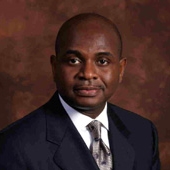Nigeria’s Buhari: Slow But Steady Wins the Race
Under its new president, Nigeria’s economic horizon will become clear soon.
August 15, 2015
Foreign investors and many Nigerians have grown impatient with President Muhammadu Buhari’s delay in appointing a cabinet following his election victory at the end of March.
Buhari has explained the care he is taking in putting a team together. And he has given a clear timeframe – September – to name his ministers.
We should give him the benefit of the doubt. When Buhari and his government settle into their stride in the fourth quarter of 2015, I believe it will be well worth the wait.
 Viewed from an international perspective, investors can be far more certain of serious-minded governance and zero tolerance for corruption.
Viewed from an international perspective, investors can be far more certain of serious-minded governance and zero tolerance for corruption.
True, the delay to date has had an effect on business confidence. The absence of a fiscal policy framework makes planning difficult in an economy in which government plays a major role. Monetary policy lacks the context of fiscal spending plans.
The merits of caution
However, beyond the reasons Buhari has publicly articulated, there are other dynamics at play. The most important is that the Nigerian leader, despite coming to power on a democratic political platform, simply does not trust Nigeria’s professional politicians.
In particular, Buhari is determined that the usual political horse-trading should not undermine his vision of governance or his authority as head of government.
Under pressure from individuals and vested interests with a predilection for public office and its privileges, Buhari was wise to apply the brakes and take control of his leadership selection process. After all, he will bear the political responsibility for the team’s success or failure.
Buhari might also have moved more quickly had it not been for an internal crisis in his party, the All Progressives Congress, over leadership positions in the country’s parliament.
Candidates favored by the party and by Buhari himself were outmaneuvered by renegade legislators from his ruling party with support from members of former President Goodluck Jonathan’s Peoples Democratic Party. This was a most inelegant political start for the new leader.
Buhari had been out of government for 30 years, since he was overthrown as a military leader in a coup in 1985. Much has changed since then, not least the return of democracy in 1999.
State of affairs, affairs of state
Despite having been an opposition presidential contestant three times in 12 years before his March victory, he has only recently acquired access to a trove of government records and information. He has needed time to acquaint himself with the true state of the country – not the former ruling party’s public presentation of it.
Meanwhile, Buhari has named Emmanuel Ibe Kachickwu as the head of Nigeria’s National Petroleum Corporation, the state-owned oil company. The new incumbent is a Harvard-trained lawyer, a corporate governance and compliance specialist who was vice-chair of Exxon-Mobil for Africa.
The appointment puts leadership of the oil company, the subject of much suspicion and controversy, into a dependable pair of technocratic hands, with positive implications for policy reforms in the oil industry.
Buhari has to still outline his broad economic policy direction. His officials have to frame policy options and convince him of their respective merits.
Possible economic agendas
It is an open question whether Buhari will agree to abolish inefficient petroleum subsidies that have placed much pressure on fiscal resources.
From the perspective of economic efficiency, he should do this – and then transfer the savings to clearly measurable social program so as to navigate the political sensitivities of such reform.
Buhari is open to increased foreign investment. But he will also favor industrial policies aimed at developing homegrown manufacturing and a welfare approach to extreme poverty.
He will wish to increase capital spending to spur qualitative economic growth in a country where recurrent spending to sustain a bloated government apparatus has reached 90% of the budget.
Despite the Buhari government’s slow start, an investment bet on Nigeria remains a good one in the medium to longer term.
Editor’s Note: The article originally appeared as the OMFIF Commentary.
Takeaways
Buhari is determined that the usual political horse-trading should not undermine his vision.
Buhari does not trust Nigeria’s professional politicians.
Buhari was out of government since the time he was overthrown as a military leader in 1985.
Will Buhari abolish inefficient petroleum subsidies that have placed pressure on fiscal resources?

